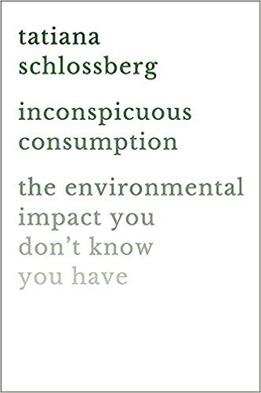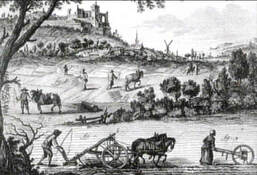
Like an onion, as one layer in the food-climate crisis relationship is peeled away, another is exposed. Food is at once easy and complex to understand when we peel the layers to look at food production, transportation, processing, preparation and waste.
There is no question that these areas and activities are having an effect on the environment and ultimately on our climate.
At each step of our food chain (production, transportation, processing, and waste), there are complex confluences of environmental factors which contribute to climate change. Tatiana Schlossberg’s Inconspicuous Consumption: The Environmental Impact You Don’t Know You Have, is an insightful read.
For instance, Schlossberg named corn as the most important and problematic crop because of its many uses. While corn feeds humans, a vastly greater percentage of corn is used as grain to feed animals and to create alcohol, sweeteners and other items. Corn also is used to create ethanol that supplements gasoline to fuel vehicles.
Each use of corn, like the peeling of an onion, has its own trail of consequences. Schlossberg, a New York Times writer, does fine work in laying out the parameters of the problems without drilling down unnecessarily.
Another layer has us examining beef, which we all know is harmful to the environment. Cow “burps,” as Schlossberg correctly explains, release methane, a key greenhouse gas.
There is no question that these areas and activities are having an effect on the environment and ultimately on our climate.
At each step of our food chain (production, transportation, processing, and waste), there are complex confluences of environmental factors which contribute to climate change. Tatiana Schlossberg’s Inconspicuous Consumption: The Environmental Impact You Don’t Know You Have, is an insightful read.
For instance, Schlossberg named corn as the most important and problematic crop because of its many uses. While corn feeds humans, a vastly greater percentage of corn is used as grain to feed animals and to create alcohol, sweeteners and other items. Corn also is used to create ethanol that supplements gasoline to fuel vehicles.
Each use of corn, like the peeling of an onion, has its own trail of consequences. Schlossberg, a New York Times writer, does fine work in laying out the parameters of the problems without drilling down unnecessarily.
Another layer has us examining beef, which we all know is harmful to the environment. Cow “burps,” as Schlossberg correctly explains, release methane, a key greenhouse gas.

In the middle ages, only the rich could afford to eat meat and meat products. Lower classes and the poor relied largely on grains, and ironically were healthier than the aristocrats. Gout was rampant among the rich, but rare among the peasants.
What to do? Solutions range from cutting back beef consumption to eliminating it and all meats entirely. Animal proteins can easily be substituted with vegetable proteins. But are proteins the only things that meats provide to the diet or do meats offer something more?
So what do we do?
Some food for thought –
Each choice apparently entails trade-offs; some are not yet known and many are only partially understood. If I learned anything from Tatiana Schlossberg's work, it is that much more research is needed. Viable and reasoned alternatives must be energetically investigated and widely disseminated. Until then, concentrating efforts on reducing carbon-dioxide seems to have the best chance of success in countering climate change.
What to do? Solutions range from cutting back beef consumption to eliminating it and all meats entirely. Animal proteins can easily be substituted with vegetable proteins. But are proteins the only things that meats provide to the diet or do meats offer something more?
So what do we do?
- Individually, we can make different food choices.
- Within our local and faith-based communities, we can invest in community gardens and support others through food drives.
- At the local, state and federal level, we might require action and enforcement on food-related environmental laws and addressing hunger.
Some food for thought –
- Go meatless one day a week – Meatless Mondays.
- How about reducing our meat consumption to three days a week?
- Go local – limit consumption to locally produced meats.
- Switch to almond-based milk options. Still though, it takes two gallons of water to produce a single almond.
- Support funding to identify or develop animal feeds that don’t produce methane. Initial results hold promise.
Each choice apparently entails trade-offs; some are not yet known and many are only partially understood. If I learned anything from Tatiana Schlossberg's work, it is that much more research is needed. Viable and reasoned alternatives must be energetically investigated and widely disseminated. Until then, concentrating efforts on reducing carbon-dioxide seems to have the best chance of success in countering climate change.

 RSS Feed
RSS Feed